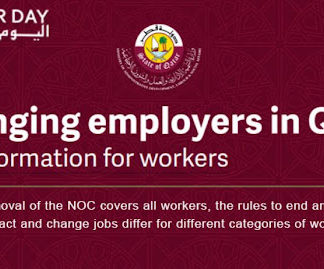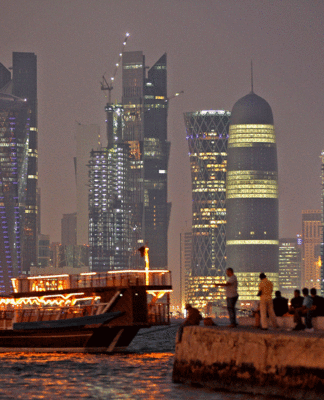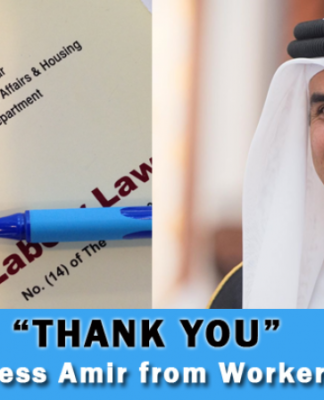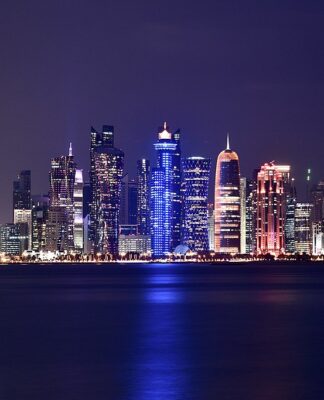Back to homepage / Culture
CINEMA
French filmmakers warn that far-right cyber-raids are torpedoing their movies
French filmmaker Mehdi Fikri has accused far-right cyberactivists and TV pundits of scuppering the launch of his police violence drama “After the Fire”, reviving talk of the influence of online rating platforms and politicised commentators in shaping movies’ fortunes.
Issued on: 05/12/2023 – 13:39
Modified: 05/12/2023 – 14:36
7 min
A still from Mehdi Fikri’s debut feature “After the Fire”, which opened in French cinemas on November 15, 2023.
A still from Mehdi Fikri’s debut feature “After the Fire”, which opened in French cinemas on November 15, 2023. © BAC Films
By:
Benjamin DODMAN
Follow
The slogan for entertainment website Allociné – dubbed the “French IMDb” due to its status as France’s go-to cinema platform – invites viewers to be “more than just spectators”.
It’s an invitation some viewers have embraced with malignant zeal, according to the French Filmmakers Society (SRF), which has warned of a concerted campaign by far-right activists to undermine films that do not align with their political agenda.
The warning follows the botched launch of Mehdi Fikri’s maiden feature, “Avant que les flammes ne s’éteignent” (After the Fire), which received a flurry of negative user ratings on Allociné even before its release in French cinemas on November 15.
Those ratings, coupled with denigrating comments in parts of the media, fatally undermined the film’s prospects, according to the SRF, which has denounced a pattern affecting other movies that tackle subjects of interest to the far right, most notably immigration.
Fikri’s film “is currently the target of a violent smear campaign relayed by social media and CNews, particularly on the Allociné platform”, the SRF wrote in a statement last month, citing a conservative news channel often described as the French Fox News due to its conservative slant and incendiary cultural topics.
The filmmaker himself has spoken of “far-right raids” on Allociné, part of a “wider campaign of harassment targeting the film”. Speaking to France Inter radio, Fikri denounced “a power strategy aimed at occupying the cultural sphere, waging a battle of ideas, and smearing people who try to tackle certain subjects”.
Echoes of ‘Adama Affair’
“After the Fire” revolves around a woman’s quest for justice after her younger brother’s mysterious death in police custody. Set in an outer banlieue (suburb) of Strasbourg, it touches on the long-standing debate of police abuses in France’s run-down suburbs, where people of immigrant descent routinely complain of being treated as second-class citizens.
The plot has elicited comparisons with the high-profile case of Adama Traoré, a Black man from the Paris suburbs who died in police custody in 2016, in circumstances that are still in dispute. It is informed by the filmmaker’s decade-long work as a reporter covering social strife in the banlieues.
The film drew a mere 18,000 spectators in the first week following its release, performing well below expectations in a cinema-loving country where the 10 highest-grossing movies that week all boasted an audience in excess of 70,000.
Even before its release, the trailer for the film had elicited a torrent of racist, insulting and threatening comments from anonymous Internet users, its distributor David Grumbach, head of BAC Films, told investigative news website Mediapart.
Grumbach said the vitriol was such that AlloCiné and BAC Films decided to close the comments section under the trailer on YouTube. The comments, which have since been deleted, accused the film of pursuing a “racial agenda” and spreading “anti-cop hatred” and “hatred of the Republic”.
Much of the anger was aimed at lead actress Camélia Jordana, a French singer of Algerian descent who has been a favourite target of the far right on social media since she took a stand against racism and police violence, stating during a TV chat show in 2020 that like “thousands of other people” in France, she “[doesn’t] feel safe in front of a cop”.
Fikri and the film’s distributor say the anger was fanned by far-right parties and media outlets owned by billionaire tycoon Vincent Bolloré, such as CNews, which they accused of falsely portraying the movie as a biopic of Traoré’s half-sister Assia Traoré, a champion of campaigns against racism and brutality in the police – and a figure reviled by the French far right.
Read more
Pushing far-right agenda, French news networks shape election debate
Critics of the film have focused on a €340,000 subsidy granted by authorities in the eastern Grand Est region, a common practice in France, where public funds are routinely used to help the country’s cherished film industry.
Last month, the local branch of Marine Le Pen’s National Rally party issued a statement blasting the use of “taxpayers’ money” to “rehabilitate a notorious delinquent whose family never ceases to insult our police and our country”, and calling for an end to subsidies for the “enemies of France”. Her party’s far-right rival Reconquête, the party of TV pundit and former presidential candidate Éric Zemmour, denounced a “scandalous” misuse of public funds to finance a movie “glorifying the Traoré family”.
‘Rotten’ ratings
While such rhetoric is no surprise coming from nationalist politicians, industry workers say the far-right’s manipulations of the Allociné platform can have a greater impact in shaping public perceptions of a film.
Launched in 1993 as a call centre providing screening times, Allociné has grown over the years to become the online benchmark for cinema information in France. It averages 14 million visitors per month, making it the second-most-visited cinema database of its kind after US-based IMDb.
Singer and actress Camélia Jordana (right), an outspoken critic of racism and police violence, seen in a still from “After the Fire”.
Singer and actress Camélia Jordana (right), an outspoken critic of racism and police violence, seen in a still from “After the Fire”. © BAC Films
Industry workers say average ratings posted on the website – one for “spectators” and another for the “press” – can have a decisive influence on films’ commercial success, particularly independent projects that rely on Allociné and the media to catch the public’s eye.
When Fikri’s movie opened in cinemas on November 15, its Allociné page posted a press rating of 3/5 based on reviews written by professional film critics. Within 24 hours of its release, however, the user rating had slumped to 1.4/5 – a score bad enough to all but guarantee a commercial fiasco.
Responding to the complaints by Fikri and the RSF, Allociné said it provides 24/7 moderation of the “300,000 to 500,000 ratings and 25,000 user reviews posted each month”, with filters in place to remove discriminatory content touching on such topics as race, religion, sexual orientation and, more bizarrely, “French comedy bashing”.
The website told AFP it uses special algorithms to ensure ratings posted by reliable users carry greater weight than those posted by newly created accounts giving the lowest grades. It said it refrained from deleting reviews, unless they contain hateful comments, preferring to issue warnings if there are signs of manipulation.
In the case of Fikri’s film, the manipulation was obvious enough for Allociné to post a warning on its website highlighting the “unusual distribution” of ratings for the film.
A screengrab of Allociné’s webpage on “After the Fire”, warning of an “unusual distribution” of user ratings for the film.
A screengrab of Allociné’s webpage on “After the Fire”, warning of an “unusual distribution” of user ratings for the film. © Allociné
Critics, however, say the website needs to do more to protect an industry it relies on.
“Allociné has to protect the people who make it work,” Eric Lagesse of the independent distributor Pyramide told AFP. “Ratings should not be determined by fascists who give rotten marks to a film they haven’t even seen.”
‘Censorship in disguise’
“After the Fire” is hardly the first film to end up in the crosshairs of the far right.
Migrant-themed movies “Amin” (2018) by Philippe Faucon, about a romance between a French woman and a Senegalese worker, and Émilie Frèche’s “Les Engagés” (“In a Better World”, 2022), on migrant crossings in the French Alps, both suffered a similar fate, according to the SRF. So did Lola Quivoron’s “Rodeo”, about urban riders who perform wheelies and stunts on motocross bikes, which won praise from French and international critics at the 2022 Cannes Film Festival.
Illicit “urban rodeos” are a sensitive subject in France, where a series of accidents have prompted calls for a crackdown on the practice. Comments by Quivoron appearing to link some of the accidents with police chases – which she said had been “extrapolated” and “distorted” – triggered a backlash against the filmmaker and her movie.
On the eve of the “Rodeo” release, Cyril Hanouna, the controversial and hugely influential host of a popular chat show on Bolloré-owned channel C8, explicitly urged viewers “not to go see the film”, which he described as a “disaster” and a “piece of shit”. Showing a picture of Quivoron, he branded her a “moron”.
The campaign to discredit the film had a decisive impact, “Rodeo” producer Charles Gillibert told Mediapart, driving its Allociné rating to a rock-bottom 1/5 in the crucial days following its release and resulting in a commercial setback for a movie that many critics had forecast as one of the hits of 2022.
Citing the mishaps encountered by Quivoron and Fikri, the SRF warned in its statement of a “resolute, massive and coordinated offensive by this movement (the far right) in the cultural sphere, with cinema identified as a prime target owing to its popular appeal”.
The filmmakers’ society stressed that it remained attached to freedom of expression and denounced what it called “intimidation tactics” that amount to “de facto censorship in disguise”.






























